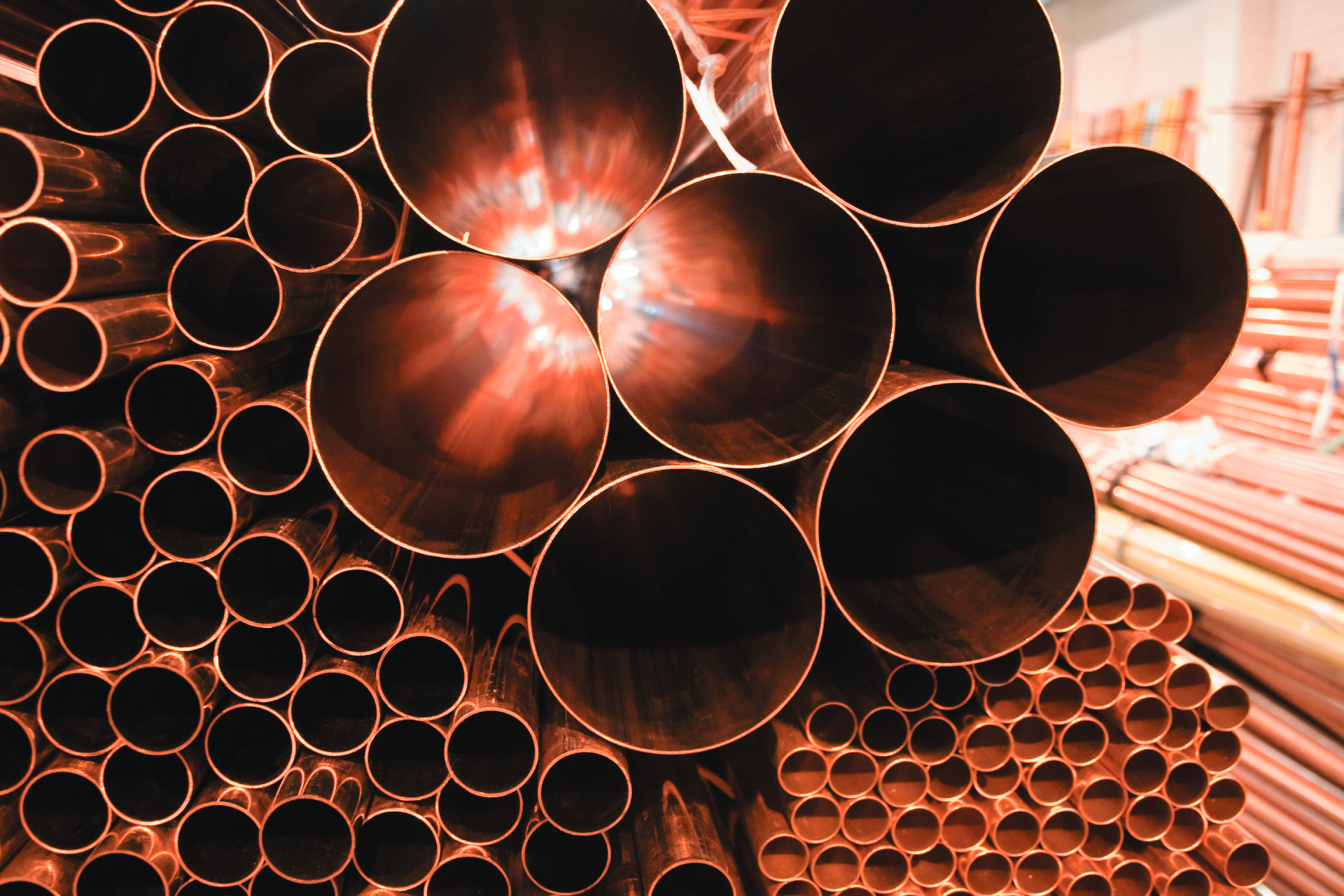
It’s an age-old argument between plumbers: copper vs plastic pipes – which is best?
There is a solid case for copper pipes when it comes to plumbing and heating. They boast many benefits that make them more economical in the long run and help to make a building more environmentally friendly. Plastic, on the other hand, is superior when it comes to flexibility. Both have their place in plumbing and heating but in the copper vs plastic pipes debate, which comes out on top?
Copper Pipes
Copper vs Plastic Pipes: Copper Pros
#1 Reliable: Copper is one of the most reliable materials on the planet, with an average lifespan of 40-70 years (depending on the environment it’s kept in). In addition, copper pipes are reliable to work with as they can be soldered at a high temperature without the metal becoming weaker and losing its integrity.
#2 Resistant to corrosion: An incredibly beneficial property of copper is its low reactivity. This helps to prolong the material’s shelf life and means that over time it’s less likely to corrode. This quality is important and makes the metal perfect for regularly handling running water at hot and cold temperatures.
#3 Impermeable: In terms of resistance to leaching and permeation in the copper vs plastic pipes debate, copper is unrivalled. Leaching is the process through which materials rub off a pipe wall and combine with the clear water flowing through. Contaminants, including chemicals, simply cannot pass through copper – the same can’t be said for PVC pipes.
#4 Malleable: Copper is a flexible metal that can be easily manipulated into different shapes without breaking. This makes it ideal for bending to fit the spaces within individual buildings.
#5 Excellent conductor: As an excellent conductor of heat, copper is an ideal material for heating installations when it comes to copper vs plastic pipes. Copper conducts heat evenly across its surface and is capable of maintaining its temperature for a prolonged period.
#6 Recyclable: When considering copper vs plastic pipes, one of the biggest benefits of copper is its capability to be recycled an endless number of times. Copper pipes that are no longer in use can be melted down and either turned into more pipes or other copper applications such as fittings. The copper product can be manufactured from recycled material and then infinitely recycled – all this happens without any loss of performance!
Copper vs Plastic Pipes: Copper Cons
#1 The initial price: The price of copper vs plastics pipes is a consideration for some. Copper pipes are more expensive than plastic both in terms of the upfront cost and the cost of installation. They require soldering and may also need extra fittings to complete the circuit. Although this might be a large upfront cost, it should last a literal lifetime, meaning the system more than pays for itself in the long run.
#2 If it freezes, it can break: During a cold snap, if your copper pipe system doesn’t maintain its temperature, it can cause the pipes to burst, which can lead to a costly repair. This is why it’s unwise to turn a heating system off completely during the winter.
Plastic Pipes
Copper vs Plastic Pipes: Plastic Pros
#1 Affordable installations: Plastic pipes are more affordable when compared to copper for installations. PEX pipes are on average 25 percent cheaper, so if you’re working on a tight budget and are willing to compromise on durability, they might be the material you opt for. (But do consider the overall cost of having to replace the whole plastic system sooner.)
#2 Flexible: Plastic is more flexible than copper, meaning it can be shaped into tighter bends than copper piping. This makes it the superior choice when considering copper vs plastic pipes for underfloor heating as many tight turns are required for the pipework to be laid out in the necessary pattern.
#3 Doesn’t corrode: Like copper pipes, PEX pipes won’t corrode after an extended period of use.
Copper vs Plastic Pipes: Plastic Cons
#1 Thinner, less durable material: Plastic pipes have thinner walls, which allows for the pipe to expand and help prevent freezing in a cold snap, but they can only expand so far before they burst and need replacing. The nature of the material also means it is weaker in the joints than a copper pipe; plastic pipes and joints are therefore more likely to become brittle and ultimately need replacing more often.
#2 Can’t be used outside: Certain types of plastic pipe are prone to UV degradation, so it’s advised you don’t use polyethene outside as it can cause the plastic to disintegrate into the water. The pipe will thus need to be replaced more regularly. When considering copper vs plastic pipes for outside installations, copper is preferable as it won’t degrade in this way.
#3 Time-consuming to manufacture: Producing polyethylene is a lengthy process, requiring lots of energy. This results in high carbon dioxide emissions and contributes towards global warming.
#4 Unlikely (and costly) to be recycled. Most plastics, especially PEX, unfortunately don’t get recycled. In fact, the cost of recycling is more than the value of the finished product! Consequently, such plastics are responsible for the biggest carbon footprint issue in the construction industry. In the fight for sustainability, copper is a far more environmentally friendly option vs plastics pipes, which most often end up in landfill.
Proper in Copper
So there you have it! While plastic pipes have their place, copper pipes are simply unmatched in reliability and sustainability in the copper vs plastic pipes debate. The higher upfront cost of copper reflects how durable it is; once installed with proper care, you shouldn’t need to replace the piping in your lifetime. It is the more economical and environmentally friendly option in the long run.
So do it proper in copper! At Lawton Tubes, we provide straight lengths of pipe, coils, fittings and plumbing accessories for use in an array of applications, whether commercial or domestic, plumbing, heating, sanitation and more.
Get in touch to find out more.
At Lawton Tubes, we provide a range of copper pipes, from 6mm copper pipe to 35mm copper pipe. Browse our range of copper pipes.
Keep Reading

Continued collaboration with valued customers facilitates NHS hospital development

Proud to Sponsor the CW Awards Global Player Category for 2026

